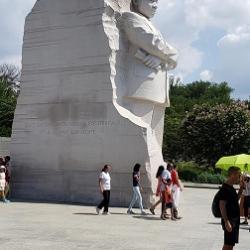Listen carefully, my child, to my instructions, and attend to them with the ear of your heart. This is advice from one who loves you; welcome it and faithfully put it into practice. ~ The opening of the Rule of St. Benedict
Last Sunday at St. David's Episcopal in Austin, the Rev. Ken Malcolm shared a story about a medieval English king who, curious about what the monks who lived in a tiny island church did all day, asked and received this answer: "They light a light, so that ships do not run aground on the rocks, and all day they pray the Daily Office."
Ken's point was that monastic spirituality, perhaps best known through the Benedictine tradition and the Rule of Benedict that shapes it, has had this role for 1500 years: prayer and work to light a flame so that the world does not run aground and destroy itself.
The great monastic Benedict of Nursia (he had a twin sister Scholastica, also sainted, who worked and prayed with him) was born into a noble Italian family in 480, a time of great chaos. The Roman Empire was disappearing, tribes of Goths and Vandals (actual ones, not today's pretenders) were making life difficult, and the Roman elite seemed to react to the challenges by self-medication: parties, debauchery, political intrigues.
Benedict turned his back on what society had to offer. Like the Desert Fathers and Mothers from whom he learned much, he went into the mountains to grow as a Christian in solitude, at last spending three years in a cave outside the town of Subiaco. Students came to him seeking wisdom, and a nearby monastery asked if he would serve as abbot.
This first experiment did not turn out well; the brothers rejected Benedict, and folklore says that they attempted to poison him. But in the years following, he synthesized half a dozen existing monastic codes as he established a dozen monasteries, learning, listening, and praying about how people from very different walks of life might live, work, and pray together as Christian monastics.
The result was one of the formative documents of Western Civilization, the Benedictine Rule. Its virtues are many: Benedict's Rule is simpler and less restrictive than earlier monastic codes, making common sense decisions about how people should dress, sleep, eat, and drink in ways that are appropriate if not extravagant. In doing so, he was enabling a healthy and lifelong Christian journey in community.
A medieval saying records that "A lamb can bathe in the Rule without drowning, while an elephant can swim in it." It is at once, accessible and deep. The Rule welcomes Christians of all stations, experiences, and degrees of knowledge to band together, learn together, love each other, and grow together toward God. A central difference between this monastic theology and that of the Desert is that the Benedictine Way sees us progressing toward God primarily in community, rather than primarily through our own efforts. The Rule is, in a real sense, about our salvation together.
Benedictines took (and still take today) a vow promising stability, obedience, and faithfulness—counter-cultural vows in our day where mobility, freedom, and individual choice are often our gods. Stability means staying where you are, engaging those in your communities (within and without the walls), and knowing that God has put you here for this season. The most powerful witness to this in contemporary times may be the Trappist Martyrs of Algeria, seven of whom were kidnapped and beheaded by a terrorist group in 1996.
In a letter to these terrorists, Father Christian, the Prior of the community, wrote:
Our state as monks binds us to the choice God has made for us, which is a life of prayer, simplicity, manual work, hospitality and sharing with everyone, especially with the poor. . . . These essential qualities of our life have been chosen freely by each of us. They bind us until death. (Laura Swan, ed., The Benedictine Tradition, 96)
It is easy, as a Desert Mother taught, for people to float from place to place without engaging the hard life of living within a real community. The Rule calls people to do just that, and, in the process, to witness to a thousand spiritual truths.
Obedience is another value Americans devalue. In the Benedictine Rule, followers are enjoined, of course, to obey God, but they are also asked to obey an Abbot or Abbess, a human who has been given spiritual authority over them. The Rule acknowledges that in human institutions, sometimes mistakes will be made and people will be hurt; it also calls the leader of a monastery to recognize the awesome responsibility of caring for the men or women they serve. A Benedictine leader is less a dictator than a life coach; as Joan Chittister remarks,





